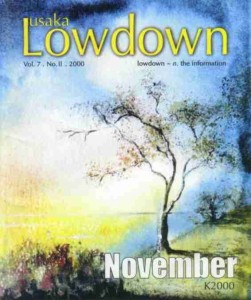 A modern dance is composed in much the same way as an essay – each movement is like a word, a string of movements like a sentence, or a phrase. Once you have a few sentences, you can start to make a paragraph, stringing the movement phrases together, attaching them with transitions that work like conjunctions and commas. Composing a dance is also like writing a song, with choruses repeating in between verses.
A modern dance is composed in much the same way as an essay – each movement is like a word, a string of movements like a sentence, or a phrase. Once you have a few sentences, you can start to make a paragraph, stringing the movement phrases together, attaching them with transitions that work like conjunctions and commas. Composing a dance is also like writing a song, with choruses repeating in between verses.
Such are the workings behind the scenes at the Gontroppo rehearsal space, led by Claudia Kennedy. The group of nine dancers reflects a diversity of dance backgrounds, countries of origin, ages, and occupations. The group has been meeting once a week for the past year to create the works that will be shown in at the Lusaka Playhouse from 16th to 18th November.
Claudia has been dancing, choreographing, acting and directing ever since she starred in her first serious role – a tree – at the tender age of four. She trained in Vienna, and the U.K. and besides working as a performer, she has taught dance and drama to people of all ages since 1988, from Baby Boppers to Jazz Kids, adult community courses to teacher training. She has been focusing on youth theatre and dance since 1993, and is particularly interested in more experimental forms of theatre and dance-drama, as well as playwriting and choreographing together with young people.
One cool evening last spring, Claudia came to the group with an idea: let’s make a dance about children’s games. The dancers exchanged skeptical glances. After a bit of gentle convincing, Claudia coaxed us into experimenting and making up movements which recalled the games and tribulations of childhood – balancing on curbs, playing hopscotch and London Bridge, avoiding the cracks on sidewalks, pulling gum off the bottoms of our shoes. “Modern dance isn’t mime,” she would remind us, and we would revise our movements, so that they retained the shapes and forms of children’s movements, but not necessarily the specific actions.
Once a working vocabulary of movement had been invented, group members were paired off to combine the movements into phrases, paragraphs, choruses. From there, the composition of the whole piece settles around the constituent parts – the beginning, the
alternation of groups, transitions, times to dance in harmony, times to create organized chaos out of the space of the stage.
There is a lot of dance in Zambia, most of it from the traditions and villages of Zambia. This is something different entirely. Modern dance, which evolved from ballet, was started by Isadora Duncan in the 1920s in America. Since then, the movements and themes that
drive modern dance have expanded and spread throughout the world, giving birth to jazz and hip-hop in its wake.
The Gontroppos’ purpose is to share some of these dance ideas with the larger community here. In Mid-November, they will present several dance pieces, along with one-act comedies performed by Claudia and Lisa Santagate. Lisa is well known to Lusaka audiences as a singer and actor, having taken leading roles in major past productions such as Cabaret, Death and The Maiden, The Rocky Horror Picture Show and most recently, Jesus Christ Superstar. The one-act comedies Lisa and Claudia will be performing take a satirical look at the characters that linger on a beach promenade one sunny afternoon. All is not what it seems, as characters reveal their wishes, dreams and follies, at times strangely moving, at others simply hilarious.
Performances start at 7.30 pm sharp on 16th, 17th and 18th November at the Lusaka Playhouse. Tickets will be available from 1st November 2000 at Original Concepts in Manda Hill (next to Post.Net, opposite Phoenix Photgraphics – see October 2000 Lowdown for information!), the American International School or by phoning 252-699 or 761-695. From 10th November onwards, tickets will also be available at the Lusaka Playhouse Box Office from 5 pm until 7.30 pm.
By Tej Rae
Leave a Reply
You must be logged in to post a comment.